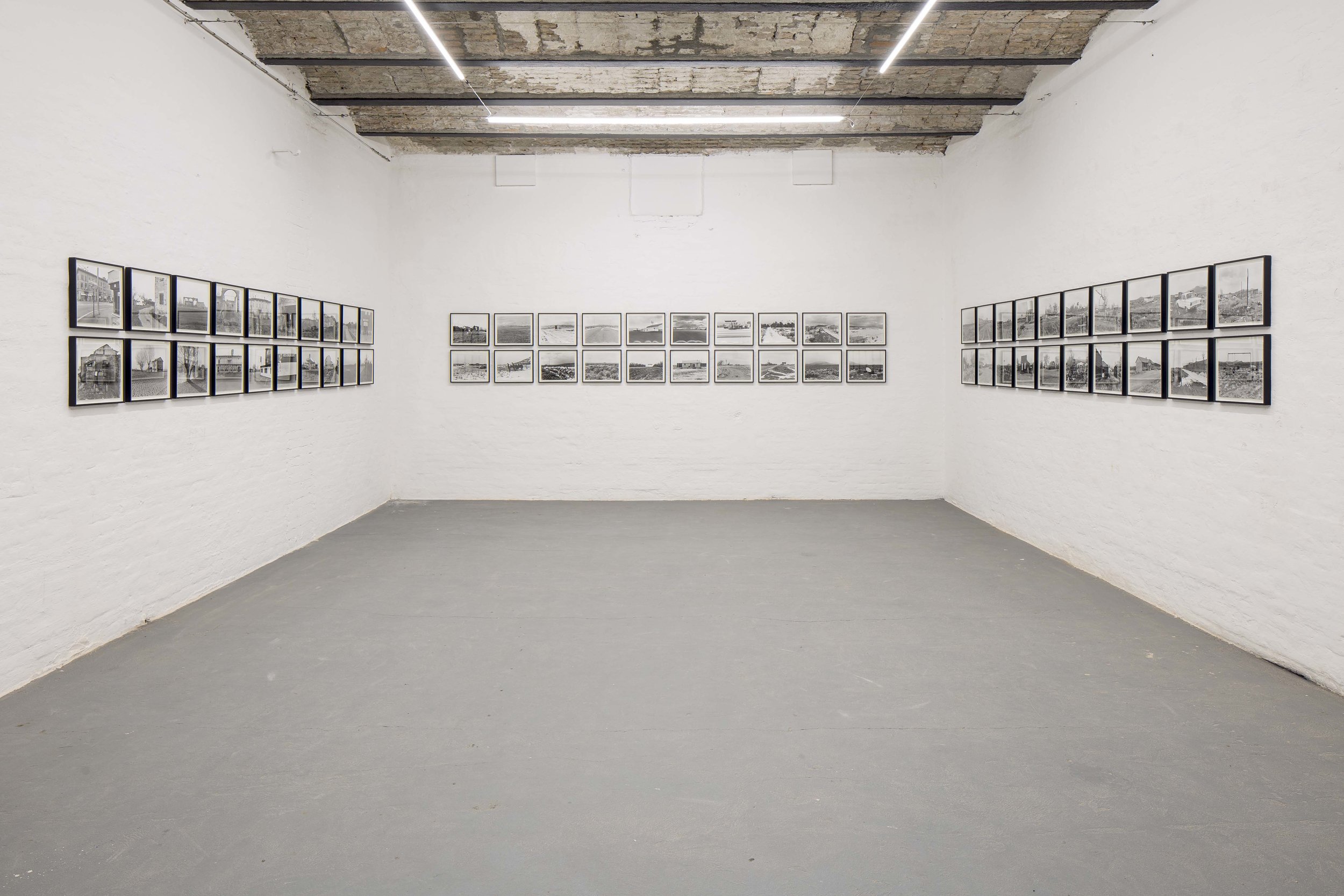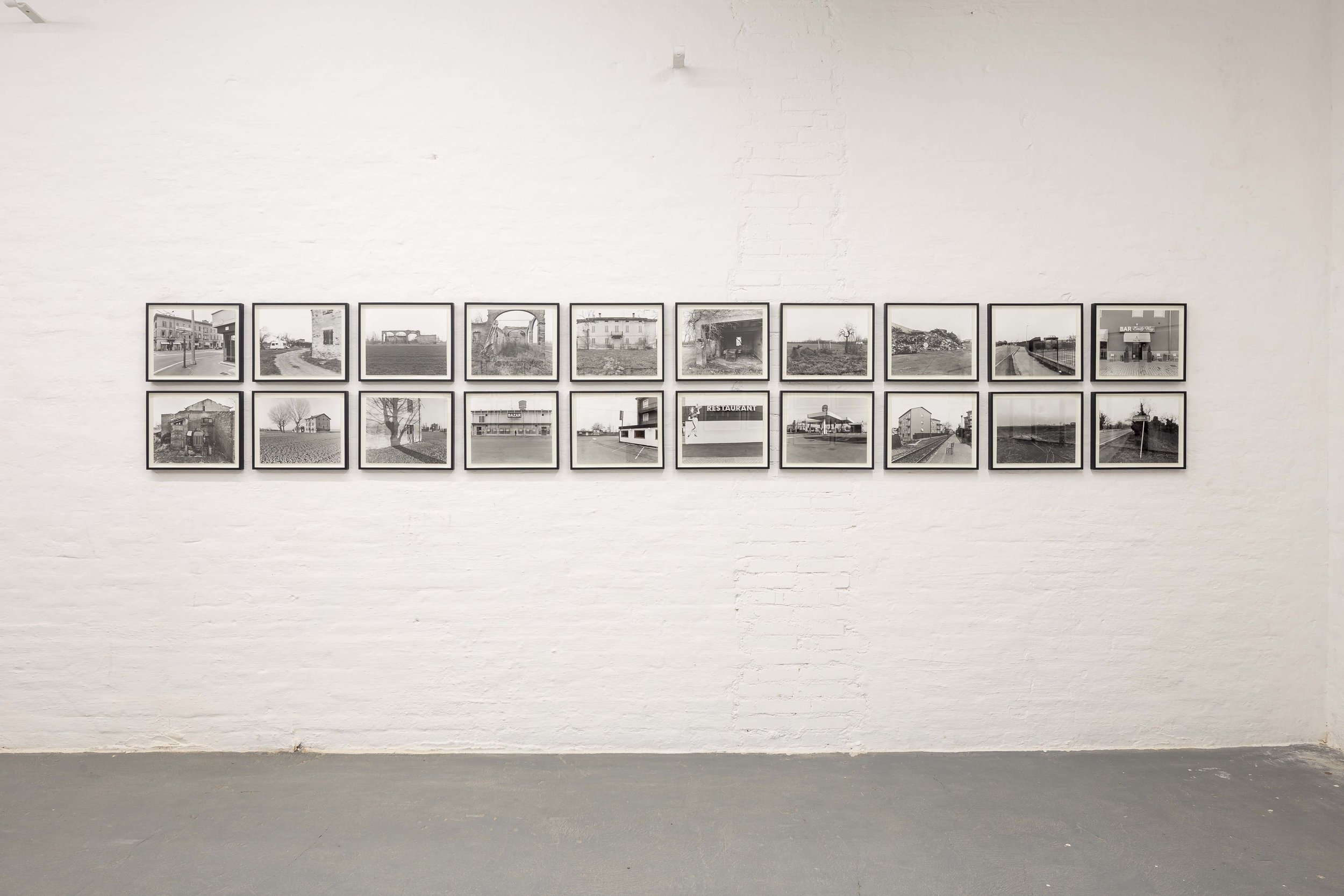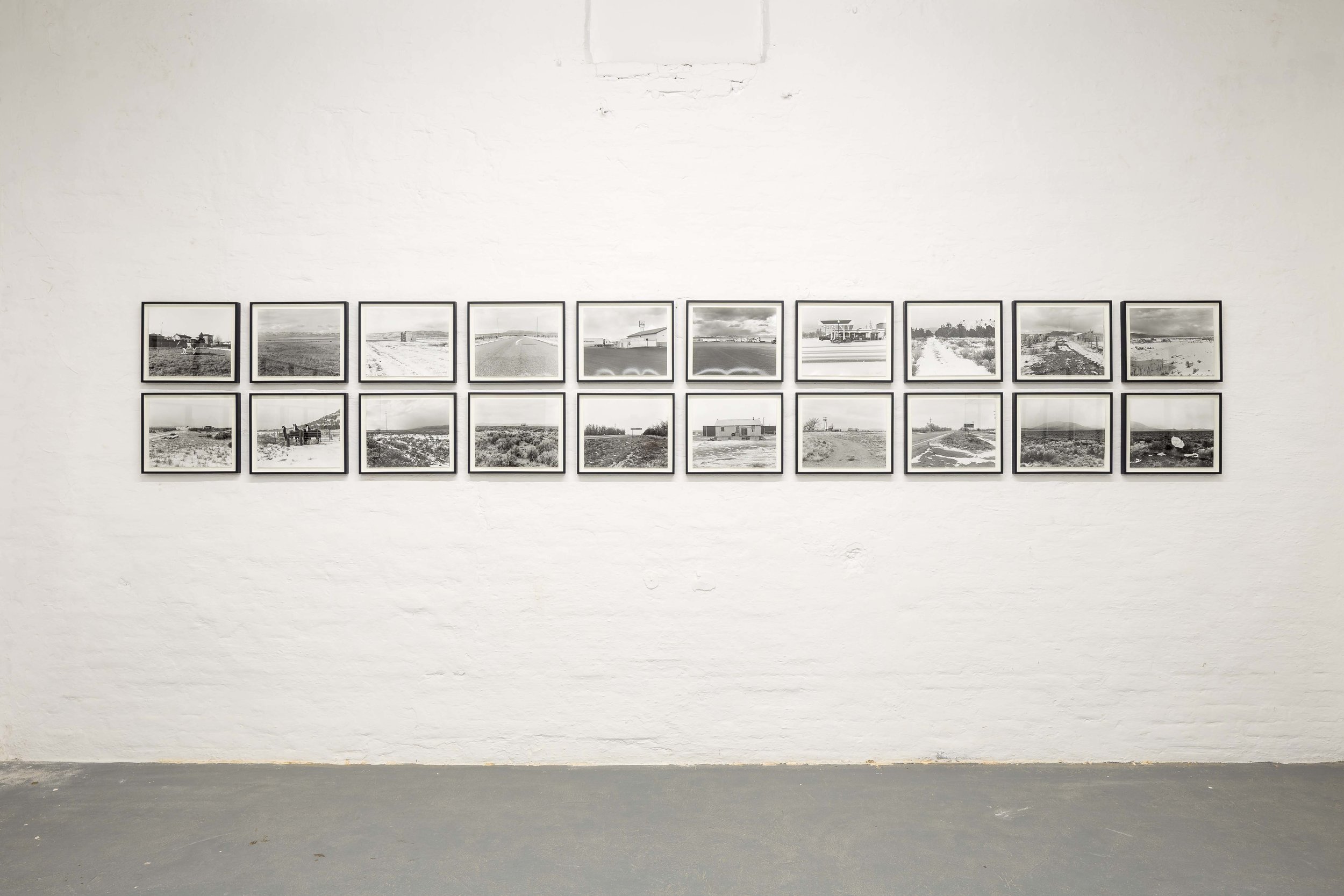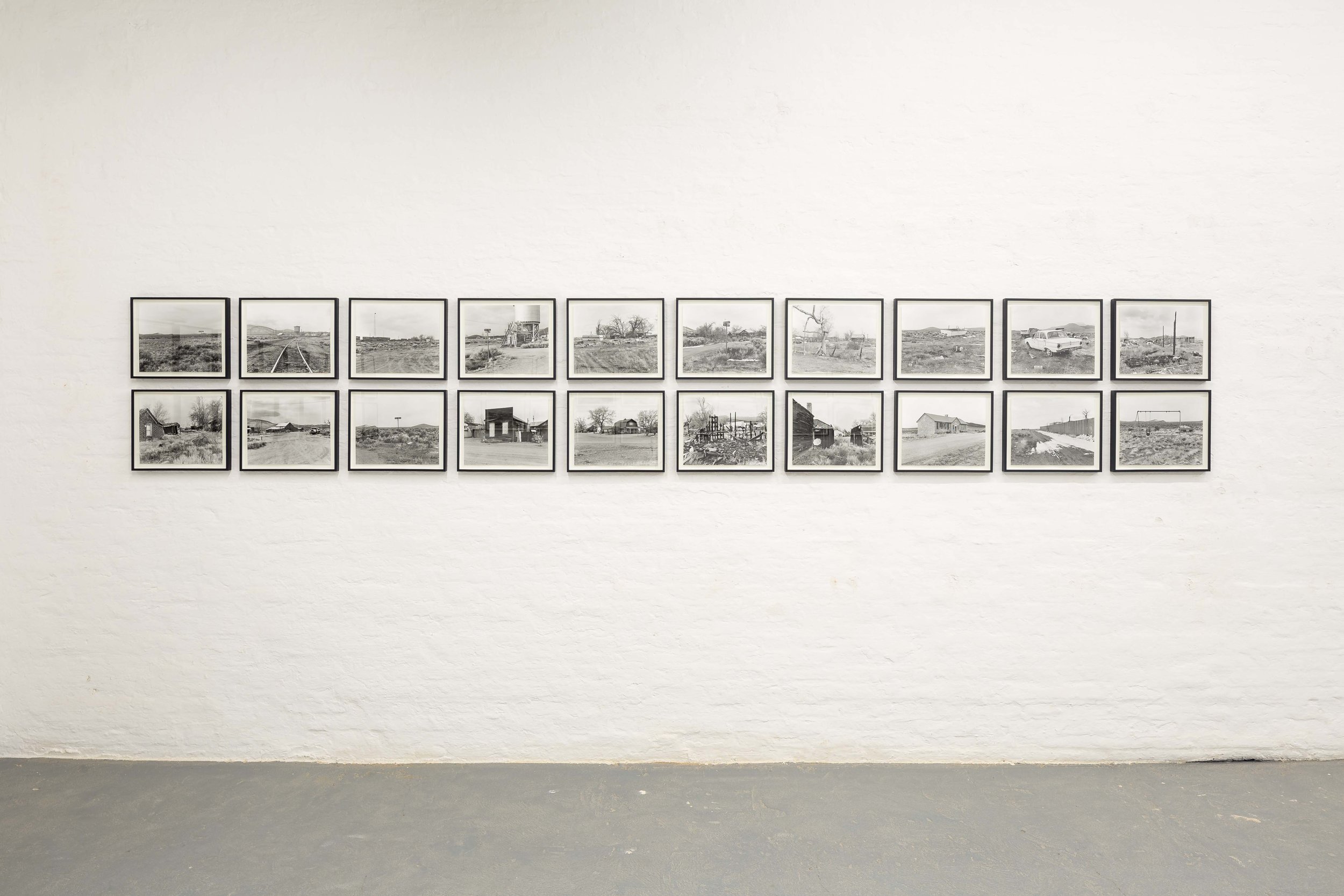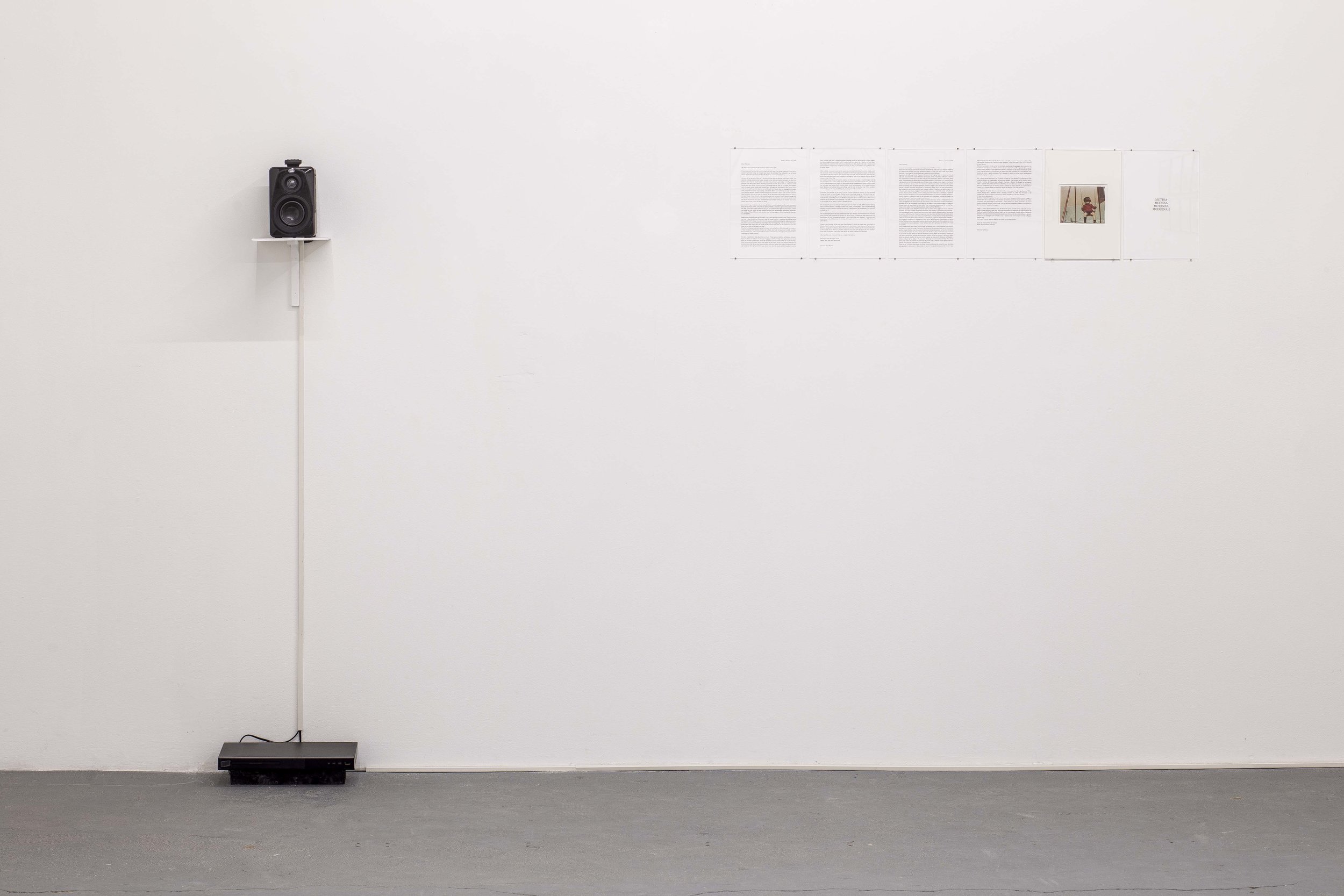MO'DINNA MO'DINNA (I WANNA GO BACK HOME)
Mo'dinna Mo'dinna (I wanna go back home), work in progress, 2016
Modena, Utah
As for the origins of the name, there are various versions: a Chinese cook is said to have cried, “Mo’dinna! Mo’dinna!” while serving up the supper to the inhabitants of a small town in the American West, founded at the end of the 19th century along the Pacific Railroad, in the middle of the desert lying between the states of Utah and Nevada. Instead, more reliable sources trace the name back to an Italian laborer (perhaps of Emilian origins) who again at the end of the 19th century, stricken with homesickness, supposedly named the railroad camp after his own place of birth: Modena. With the advent of the railroad crossing Iron County, in December 1899 Mr. Brigham J. Lund set up a small concern in Modena together with a number of business partners, transporting goods to St. George (Utah), Pioche and Delamar (Nevada). In 1903 Lund broke up with his associates and founded the B.J. Lund & Company. To this day, his name appears on some of the few crumbling buildings in the tiny town. Today Modena (pronounced Modeenah by its inhabitants) is almost a ghost town, were it not for the five families who have remained. There is still a post office, a rusty gas station – “no service available” – and the only stone building still left standing, which hosts the old school where the schoolteacher Edna Thorley once worked. Today there are no children left in Modena, and Mrs. Thorley (now 90 years old) spends her time filling huge scrapbooks with her memories of yesteryear. Vincent Rice (fireman and psychoanalyst) and his wife purchased the building a few years ago. Unfortunately, they were unable to involve the 11 inhabitants of the town of Modena in their recreational activities – although in one classroom there remains a small drum kit and an old electric heater. Vincent is resigned to the fact that the only one of his fellow citizens with whom he had become friends no longer leaves the house because he can’t stand the noise. Modena is surrounded by the desert and shrouded in silence. The only sounds that may disturb his sleep are the barking of Vincent’s dogs and the long goods trains that trundle down from Nevada and pass through without stopping at the station. Cedar City, the nearest town, lies 50 miles away. One freezing morning in late November, I decided to go from Parma to Modena, and so while keeping to the Via Emilia, I suddenly found myself in the middle of the desert.
Milan, January 1st, 2016
Mo’dinna Mo’dinna (I wanna go back home), global view of the installation, 61 black and white prints on baryta paper, 27 x 39 cm plus frames, a letter on two sheets of A4 with plexiglas, a vintage picture, sound, ed: 3+1 AP, 2016
Milan, January 1st, 2016
Dear Vincent,
We met at your school on the morning of November 27th. Francesca and I arrived by car, driving from Salt Lake City along Highway 15, and after many southward miles, we turned onto route 56 at Cedar City, followed it up to Baryl Junction and then, flanking the Pacific Railroad, we reached Modena. As soon as we got out of the car – the air was raw and the ground was frozen solid – we started walking towards the house closest to the railroad tracks (it wasn’t till after we had met you that we found out it was in fact your house), and a dog with flaming eyes jumped over the garden fence, barking furiously as soon as he saw us.
A woman with blonde hair and work clothes shouted something and the dog, as if caught in a sudden spell, stopped in his tracks and trailed back through the open gate in the fence. For a moment we had feared for the worst, and I really don’t know how we managed to remain still: petrified but most importantly unharmed. Then I moved away to take some pictures around the few houses still standing. Francesca had a quick look around and then shut herself in the car to read the history of the Mormons and sip hot green tea from a thermos flask. It was bitterly cold and my hands were so numb I could hardly change the film rolls in my camera. An abandoned motorboat, nonetheless on sale in the midst of all the burnt-out trucks and cars, reminded me that despite being in the middle of a rocky desert, the ocean wasn’t all that far away. I remember I spent about an hour away from the car, photographing the rusty carcasses lying offthe main street, towards the desert. Slowly I started to get on better terms with the dog, which had begun following me, yet not without a thought for Francesca, locked up inside the car, which we had parked between two presumably abandoned buildings: the old Last Chance Saloon and another one, perhaps a post office, bearing the inscription MODENA. Making my way back from the railroad, I saw a man driving around slowly. Then I reached our car. It was locked but Francesca was no longer inside. I imagined her having been kidnapped, held hostage in an abandoned camper, and me spending the night waiting for the police to arrive the following morning to start investigating. Our car covered in frost, locked shut and out of gas, the books on Mormons still open on the dashboard and the flask of tea still warm under the seat…
I started looking around and calling her name out, and after a while, through the window of that building with Modena written on it, I saw you both sitting round a table. Luckily, that man was you, and as my heartbeat began to slow down, I thought perhaps I had been watching too many movies. You had transformed that place into a school. There are no children in Modena, but perhaps you did so in order to create a meeting place. Undoubtedly, I thought, someone must meet up in these cold rooms, given the number of cans of beer piled up in the buckets. Next to an electric heater which had taken on the color of fire, you started telling us a bit about your life, about your young mother and your father who played the guitar at her side until she died giving birth to you; about your aunt far away and her daughters, about your current wife who cleaned windows hanging from tall skyscrapers, about Alaska and your daughter’s acrobatic achievements, and your years as a teacher in Salt Lake City. However, you didn’t tell us how you ended up in that place with only a few houses and even fewer inhabitants along that railroad, or why you decided to stop off there for so many years. After a while, a woman came in, the same one who had halted the dog in his tracks, and the same one whom, shortly before, I had asked whether I might photograph her in front of her house. She had said no. That woman was your wife, and you had just spoken to me about her great shyness in the company of strangers. And so you offered to pose for the only portrait of that day.
As I walked along those dirt tracks, waiting for the train to pass, I wondered just how it was possible to live in the middle of the desert, 50 miles from the nearest town, and what sort of relationships there might be among the eleven inhabitants in those houses along the railroad. And most of all, whether there were any analogies to be made between your Modena, so isolated from everything, and the one in Emilia, Italy. Then another never-ending goods train shuffled past, making one hell of a noise… Yesterday, the last day of the year, I was in Parma visiting my parents. In the morning I woke up early to reach Reggio Emilia by car, travelling along the Via Emilia, the ancient Roman road linking Piacenza to the sea in Rimini. After Reggio, I carried on a few miles further, and before reaching Modena, I stopped off in a field to take a photo. For a moment, in the middle of the rising fog, I felt like I was not so far away from your school, in the middle of the desert. And so I thought of you. I’m reading the photocopied article that you gave me before we left, “When Desert Spring Was a Robber’s Roots” – Sunday October 27th, 1969, The Nevadan – and I was wondering whether you have finished writing the history of Modena and its inhabitants. Are you still working on it? The Photography Festival that I mentioned will open in May, and I wanted to tell you that your portrait will be among the images on show. I hope it comes out well and that it will remind you of that November afternoon – very chilly but very pleasant – when we met inside your school. I have yet to develop the negatives, but as soon as I do, I’ll send you a few shots. Today is the first day of the year, and from Parma I’ll catch the usual slow train back to Milan where I now live. I was thinking back to the distance that separates Parma from Modena, along the Via Emilia, but now, having seen that endless goods train trundling by in the middle of the desert, I couldn’t really tell you quite how far apart the two Emilian town are, or just how long it will take me to get home to Milan this evening.
After all, Vincent, whenever I get on a train, I fall asleep.
Hoping to hear from you soon.
Happy New Year, and good luck,
Antonio




















all images © Antonio Rovaldi









